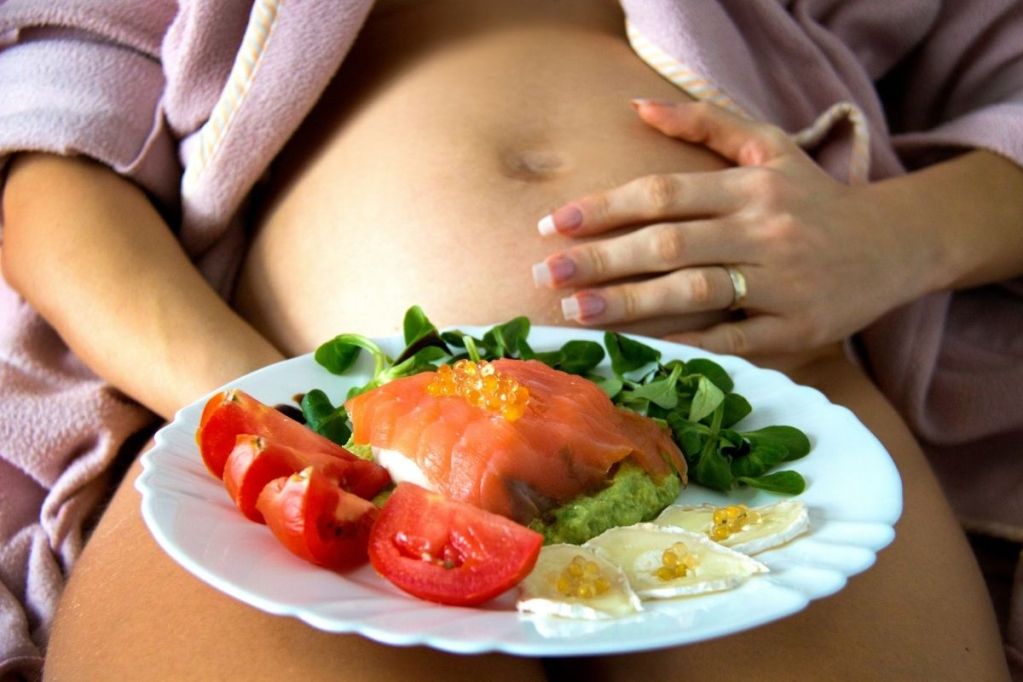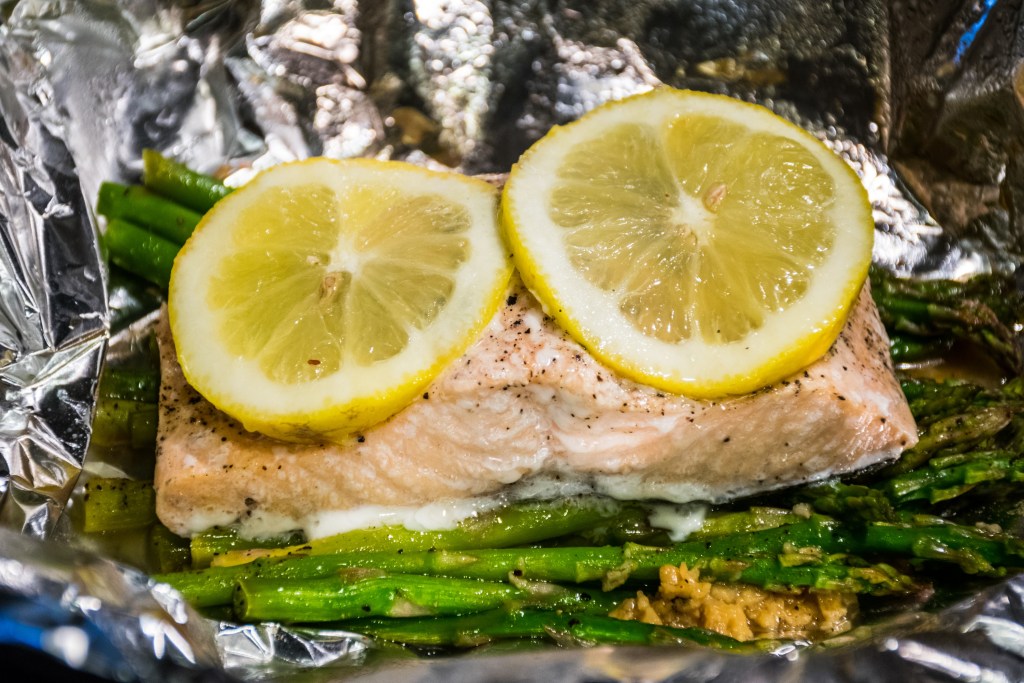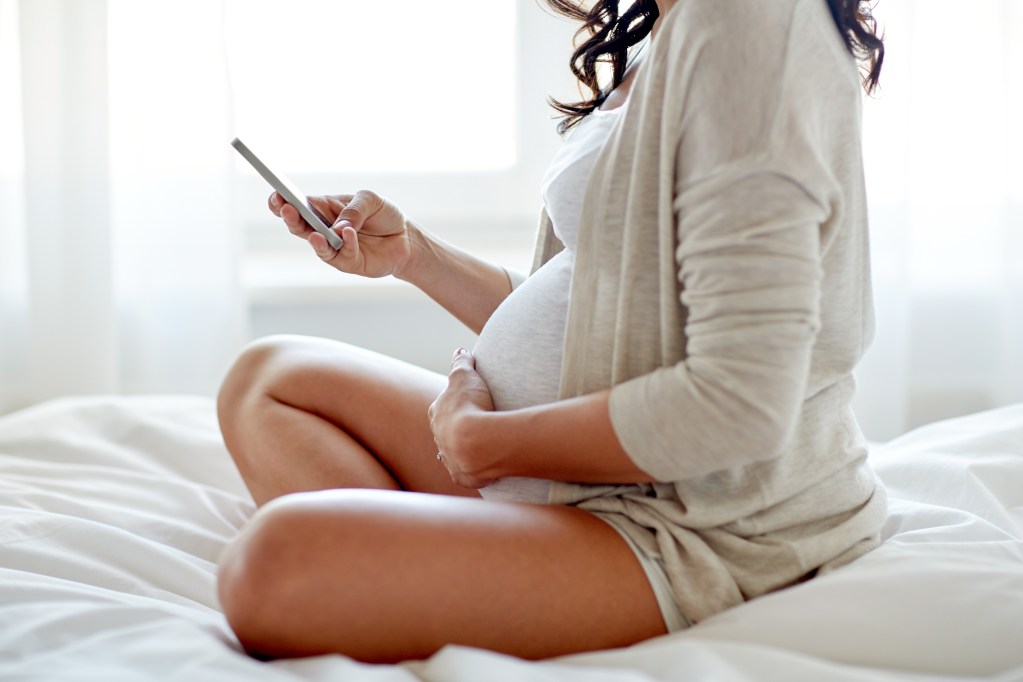
Figuring out what you’re allowed to eat and not allowed to eat while pregnant can be a time-consuming task and takes mental energy you just don’t have. You know sushi is off the list, but what about cooked salmon?
Certain fish is not only safe to eat during pregnancy, but even recommended. However, how you prepare it and how often you can eat it are other matters. (They just have to make it difficult, don’t they?) Read on to find out where salmon falls on the list of pregnancy-safe fish and how often you can eat it during pregnancy.

Can I eat cooked salmon skin while pregnant?
The short answer is yes, but of course, there are always qualifiers.
Salmon is a healthy food and a good source of important nutrients for pregnant people. There are other places you can get these nutrients, but salmon is a choice that packs a punch.
“Salmon is an excellent source of DHA or omega 3 fatty acids, which have many benefits to developing the fetus as well as to the pregnancy,” says OBGYN Daniel Roshan, MD, FACOG, FACS. “These benefits include possible positive impact on neurodevelopment in the fetus and infant, reduction in preterm delivery, as well as s possible decrease in pregnancy-induced hypertension.”
The American College of Obstetricians and Gynecologists (ACOG) lists salmon as an example of a good source of vitamin D during pregnancy, which they say can build your fetus’s bones and teeth.
Besides the omega-3 fatty acids and vitamin D, salmon also provides vitamin B12, protein, potassium, iron, vitamin B6, and much more. Most importantly for pregnancy, it also has seven percent of your daily value of folic acid, a key nutrient in prenatal vitamins.
However, salmon must be fully cooked to be safe for pregnancy. There is a risk of listeria and other bacteria if it is not well cooked.

When is salmon not good for pregnancy?
All fish can be a risk to eat during pregnancy because they contain some mercury, but certain kinds contain more than others. Salmon is a lower mercury fish, and therefore, a safer fish for pregnancy (and in general, including for kids). The Food and Drug Administration (FDA) recommends salmon as one of the safest fish options for being well below the threshold for safe mercury levels set by the Environmental Protection Agency and FDA.
Fish (including salmon) can also carry bacteria and germs if not properly cooked, but if you fully cook it, salmon is considered not only safe but recommended for pregnancy in moderation. Eating cold-smoked salmon, raw salmon, or undercooked salmon can put you at risk for listeria, a dangerous bacteria for pregnant people and their fetuses. Pregnant people are at higher risk for listeria and it can pass through to the placenta and cause premature birth, low birth weight, or miscarriage. This isn’t unique to salmon — listeria lives on any uncooked produce.
Eat only hot-smoked, fresh, or shelf-stable salmon that has been fully cooked. According to Mayo Clinic, “Most seafood should be cooked to an internal temperature of 145 F (63 C). Fish is done when it separates into flakes and appears opaque throughout.”

How much salmon can I eat while pregnant?
While salmon provides excellent and important nutrients and is considered a safe food, pregnant people should still limit the amount they eat it because of its mercury content. If eaten more than twice per week, the mercury could build up to unsafe levels for a fetus’s development. Babies exposed to too much mercury in utero can have brain damage and problems with hearing or vision.
The U.K.’s National Health Service says that pregnant people should eat “no more than two portions of oily fish a week, such as salmon,” and the FDA says that pregnant people can eat 8 to 12 ounces of fish lower in mercury per week. (That is two to three portions since the FDA defines a portion during pregnancy as 4 ounces.)
If you eat 8 ounces in one sitting, count that as two portions, not one. Eat the salmon right after cooking it instead of as leftovers so that no bacteria can grow on it while you store it.

Fish you should avoid
Although fish is a good source of omega-3 fatty acids, some fish aren’t safe during pregnancy. Although tuna is generally considered safe, the Mayo Clinic warns against eating more than 6 ounces per week. They also suggest staying away from predatory fish such as sharks, swordfish, king mackerel, or tilefish because of mercury concerns.
In addition, pregnant people should also avoid “oysters, sushi, sashimi, and refrigerated seafood that hasn’t been cooked that is labeled nova style, lox, kippered, smoked, or jerky.” If you buy fish that is caught locally, you should also ask about those mercury levels, and also limit your consumption to 6 ounces a week if that information isn’t available.
Now that you know all there is to know, all that’s left is to enjoy. Bon appétit!



